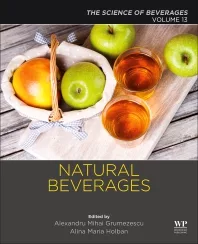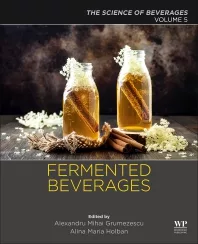R&D Feature
Digestive health ingredients help fill nutritional gaps for consumers
Beverage-makers embrace fiber, prebiotics, probiotics and postbiotics solutions

It’s not just a gut feeling — data is showing that consumers are more concerned about their overall health. Health-conscious consumers are turning to functional foods and beverages to stave off illness and boost health and well-being.
“Research indicates that 57 percent of global consumers are concerned about their immunity because of COVID-19,” explains Daniel Calvo, global marketing specialist for business-to-business microbiome solutions at Chicago-based Archer Daniels Midland (ADM), citing data from FMCG Gurus, St. Albans, United Kingdom. Additionally, consumers are worried about how pandemic lifestyles have affected their weight as well as pre-existing conditions such as hypertension, diabetes and cardiovascular disease. “For many people, ongoing stay-at-home restrictions, lack of exercise and emotional eating are adding up,” he says.
To counter this, more people are proactively seeking nutrient-dense products that are good for the gut and promote digestive health. Insights from The Hartman Group, Bellevue, Wash., showed that 51 percent of surveyed consumers already were turning to functional beverages in the early part of the pandemic.
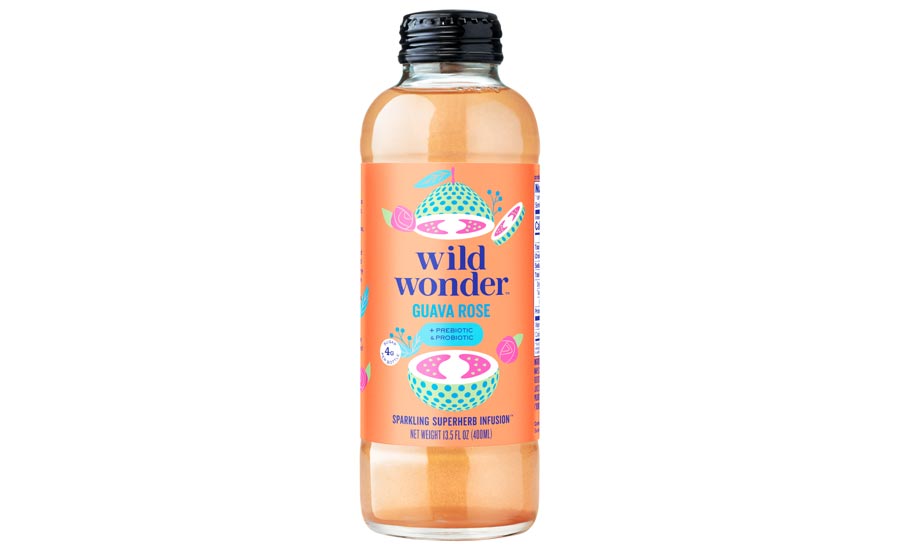
(Image courtesy of Wildwonder)
Although vitamins have long been associated with immunity benefits, consumers are becoming increasingly aware of the link between gut health and overall immunity, points out Leanne Levy, director of marketing for food and beverage at Deerland Probiotics & Enzymes, Kennesaw, Ga. “In fact, the gut accounts for about 70 percent of the body’s immune system,” she explains. “Even 90 percent of one’s serotonin is made in the gut.” The hormone serotonin is known for stabilizing mood and supporting feelings of happiness, but it also helps with sleeping, eating and digestion, according to the Endocrine Society, Washington, D.C.
In line with current and pre-pandemic trends, about one-third of new beverage product launches in the United States between 2017 and 2020 contained a health claim, according to data from Innova Market Insights, Arnhem, The Netherlands.
Ingredion Inc.’s 2021 proprietary consumer study confirmed that consumers are looking for two main benefits — supports overall health and supports immunity — and are seeking out products with soluble fibers, prebiotics and probiotics, explains Diana Nieto, senior marketing manager of starch-based texturizers at the Westchester, Ill.-based company.
Less-fragile fermentations
Along with the increased interest in digestive health ingredients comes experimentation with new options. Postbiotics, an emerging trend in the “biotics” family, are “a preparation of inanimate micro-organisms and/or their components that confers a health benefit on the host,” according to the Sacramento, Calif.-based International Scientific Association, which released this new definition late last year.
Scientists are continuing to conduct research into the health benefits of postbiotics, and research suggests that some postbiotic strains already are known to support metabolic or digestive health, ADM’s Calvo says.
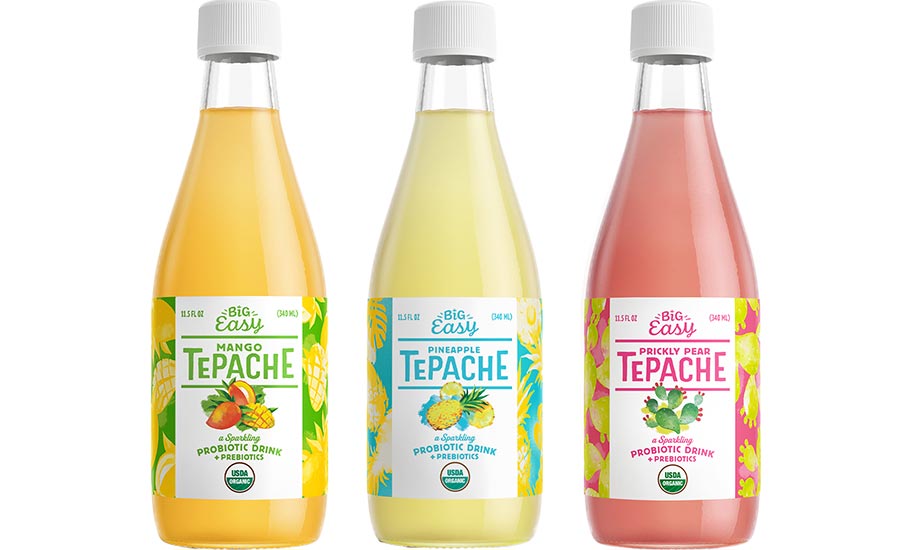
(Image courtesy of Big Easy Bucha)
Because postbiotics are not living, they are more stable ingredients that do not require special refrigeration to sustain them, which can make them easier to work with and suitable for a wider array of beverage applications, Calvo explains. ADM’s new HT-BPL1 postbiotic, a heat-treated version of its BPL1 probiotic,
Cargill Inc.’s EpiCor postbiotic also can handle a variety of pH levels and has a three-year shelf life from the manufacturing date, says Angela Bonnema, senior scientist at the Minneapolis-based company. EpiCor is made through a natural fermentation process that enables beverage-makers to offer the health benefits of fermented foods and kombuchas in a more palatable format, adds Cashtyn Lovan, senior marketing associate. “It is a whole food ingredient, meaning nothing is extracted or purified; instead, the entire fermentation broth is dried to become EpiCor,” she explains.
Because of its low dosage rate at just 500 milligrams for each serving, EpiCor needs to be well dispersed within a batch in order to ensure that the finished products contain an efficacious amount of the ingredient, Bonnema notes. More than a dozen published studies have clinically shown that EpiCor can support the immune system and positively modulate gut microbiota, Lovan adds.
Delicious digestive benefits
From a formulation perspective, EpiCor imparts a rich, brown color and molasses flavor, so it works best in chocolate-flavored beverages as well as hot and cold coffee and tea beverages, according to Bonnema.
Probiotics, on the other hand, do not impart flavors into beverage formulations, so beverage-makers are free to play with a variety of flavor profiles in these types of better-for-you beverages, Deerland’s Levy says.
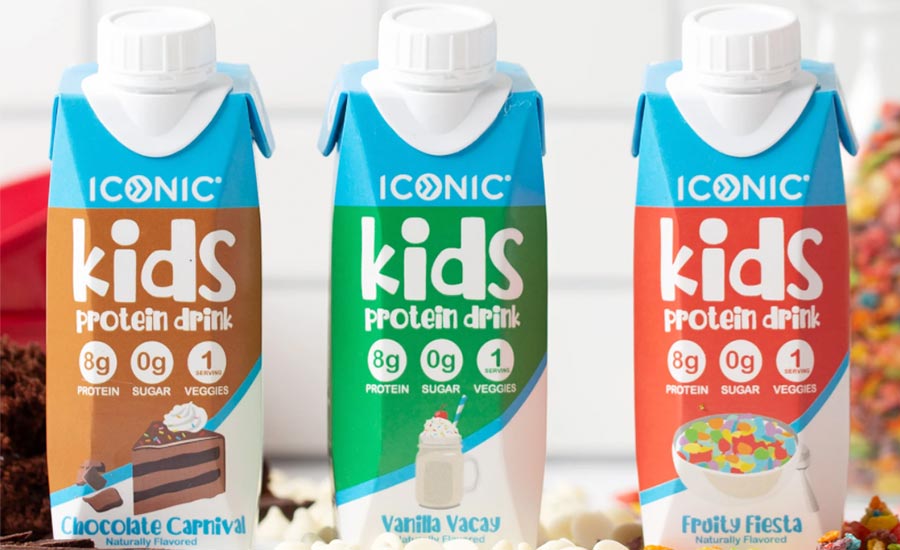
(Image courtesy of Iconic Protein)
This can be an important formulation benefit because taste still is the primary purchasing factor for consumers, although healthfulness has climbed to second place, says David Nichols, category development and planning manager for Tate & Lyle, Hoffman Estates, Ill.
Micah Greenhill, beverage marketing director at ADM, notes there’s been a large increase in interest in sour flavor profiles, which are associated with microbiome-boosting kombuchas and digestive health. Similarly, citrus, one of the fastest-growing flavor categories, is associated with immune system benefits, increased energy and improved mood, he adds. Consumers are drawn to familiar flavors like orange, pink grapefruit and tangerine as well as global flavors like kumquat, yuzu, Sicilian lemon and Tahitian lime, he explains.
At the same time, Cargill’s Pam Stauffer, global marketing programs manager, points out that sour flavor profiles don’t resonate with everyone. Therefore, beverage-makers have plenty of opportunities to offer more accessible beverages that still offer digestive health benefits.
Last year, Iconic Protein, Santa Monica, Calif., launched a ready-to-drink protein beverage for kids that incorporates the digestive health benefits of prebiotic chicory root fiber and comes in three accessible flavors: Chocolate Carnival, Vanilla Vacay and Fruity Fiesta, which tastes like popular fruity cereals, the company says. As one of the world’s most popular flavors, vanilla is a great asset for making health-forward beverages more approachable, ADM’s Greenhill says.
The slow fiber movement
In terms of actual digestive health ingredients, fiber remains the No. 1 ingredient consumers seek to add to their diets, ADM’s Greenhill says. Consumers are utilizing fiber to assist with digestion, weight management and satiety, he notes.
At present, most individuals fall short of consuming the daily recommended amount of fiber, says Marcia Petit, technical category manager of North American beverage applications and technical services at Tate & Lyle. This fact signals an opportunity for beverage-makers to close this nutrition gap, she points out.
However, it is vital that beverage-makers choose digestive health ingredients that will alleviate gastrointestinal (GI) discomfort rather than cause it, Deerland’s Levy advises. “Even before the pandemic, many consumers faced gut and digestive disorders or general discomfort,” she explains. “What was once a taboo or closed-door conversation has shifted. Consumers are more open to talking about and researching how they can take control of their digestive issues.”
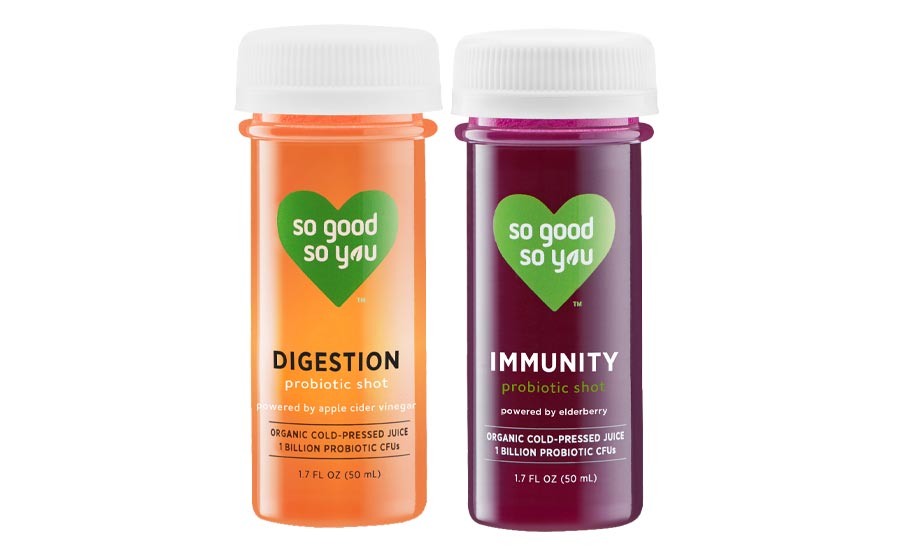
(Image courtesy of So Good So You)
Even people who do not have digestive disorders could experience gastric discomfort from fiber and probiotics. “Ingredients that ferment slowly in the colon are key to overcoming gastric discomfort,” ADM’s Calvo says.
ADM’s prebiotic Fibersol ferments in the colon at a slower rate than other soluble fibers like inulin, meaning the ingredient is well tolerated by consumers in general, Calvo says. Since 2019, the ingredient has been recognized as a low-FODMAP (fermentable oligosaccharides, disaccharides, monosaccharides and polyols) ingredient. This classification given to products is associated with reduced gut discomfort in individuals medically diagnosed with irritable bowel syndrome.
Similarly, Tate & Lyle’s Promitor Soluble Fiber, a corn-based prebiotic soluble fiber, has more than two times the digestive tolerance of inulin, Petit says. This high-fiber ingredient is ideal for use at lower inclusion levels to help consumers reach their nutritional targets while still maintaining gastric comfort, she adds.
Breaking down formulation blockages
Fiber and probiotic ingredients can impart a different type of discomfort in beverage formulations. Some fibers can impart a chalky taste, thicken a beverage, affect the beverage’s color or break down into sugars during storage, Petit explains.
Cargill’s Oliggo-Fiber, a chicory root fiber, does not affect the taste or texture of the final product, says Christine Addington, senior technical service manager. However, if beverage enhancements are needed, the Oliggo-Fiber line includes options that can enhance mouthfeel, which can be useful in reduced-sugar formulations, she notes.
Although the soluble fiber is easy to formulate with, it is susceptible to hydrolysis in acidic conditions with a pH around 4.0 or lower, she says. “The degree of hydrolysis will depend on the temperature and the duration of exposure to the acidic environment,” Addington explains. “We understand this phenomenon well and have created mathematical models that help our customers predict if this will be a challenge in their finished products.”
When using probiotics, stability is another formulatory concern when working with probiotics, Deerland’s Levy says. “It is important to understand how the chosen probiotic works in the specific beverage manufacturing process and throughout its shelf life to deliver an efficacious dose in the small intestines,” she explains. “This is where spore-forming probiotics can provide value, as they form endospores to protect themselves in varying conditions, such as higher temperatures and the acidic environment of the gut.”
Deerland’s spore-forming DE111 probiotic remains viable within a wider temperature and pH range, including beverage processing and storage as well as the acidic environment of the GI tract, the company says. In stability testing, it experienced virtually no loss of colony-forming units in 24 months when stored at room temperature, it reports. Furthermore, multiple clinical trials have shown that DE111 supports digestive and immune health in adults and small children, muscle recovery, body composition and cardiovascular health, Levy adds.
Given the variety of nutritional benefits digestive health ingredients can offer, experts predict that interest in these types of functional ingredients will remain in vogue long after the pandemic.
“People are always looking for delicious and convenient ways to consume vital nutrients, and beverages are a great option to meet this need,” ADM’s Calvo notes. “New formulations present opportunities for brands to continue to educate consumers on the many ways our gut microbiome impacts our overall health.”
ADM’s Greenhill adds that the market is ripe for innovation in this beverage category. The next logical segment will be making digestive health beverages more approachable for the mainstream consumer, he says.
Looking for a reprint of this article?
From high-res PDFs to custom plaques, order your copy today!



